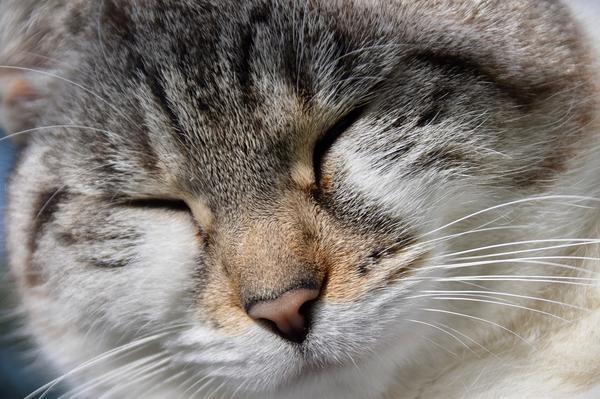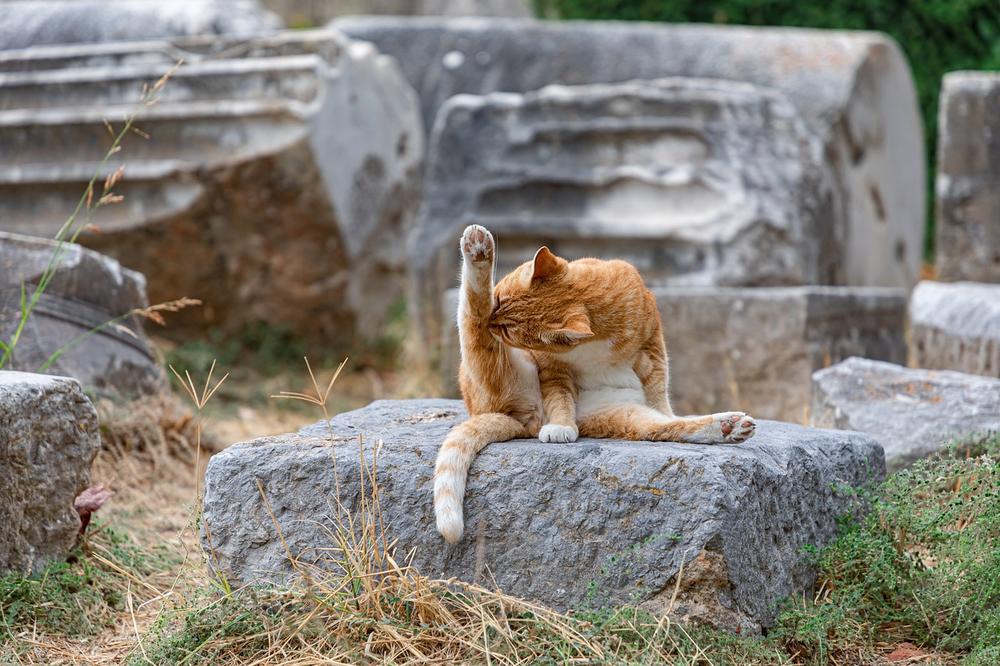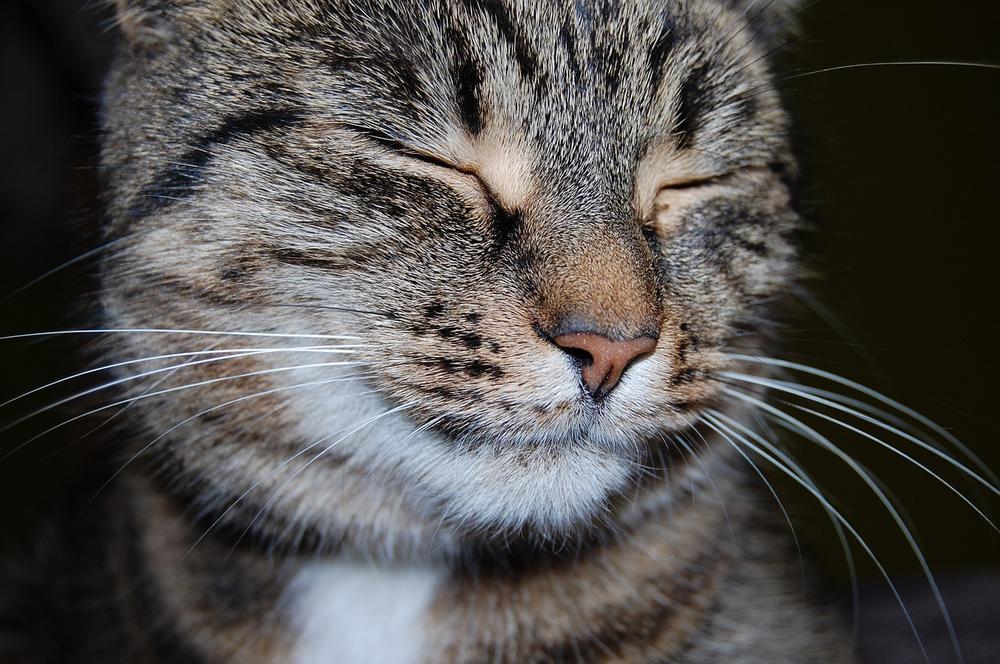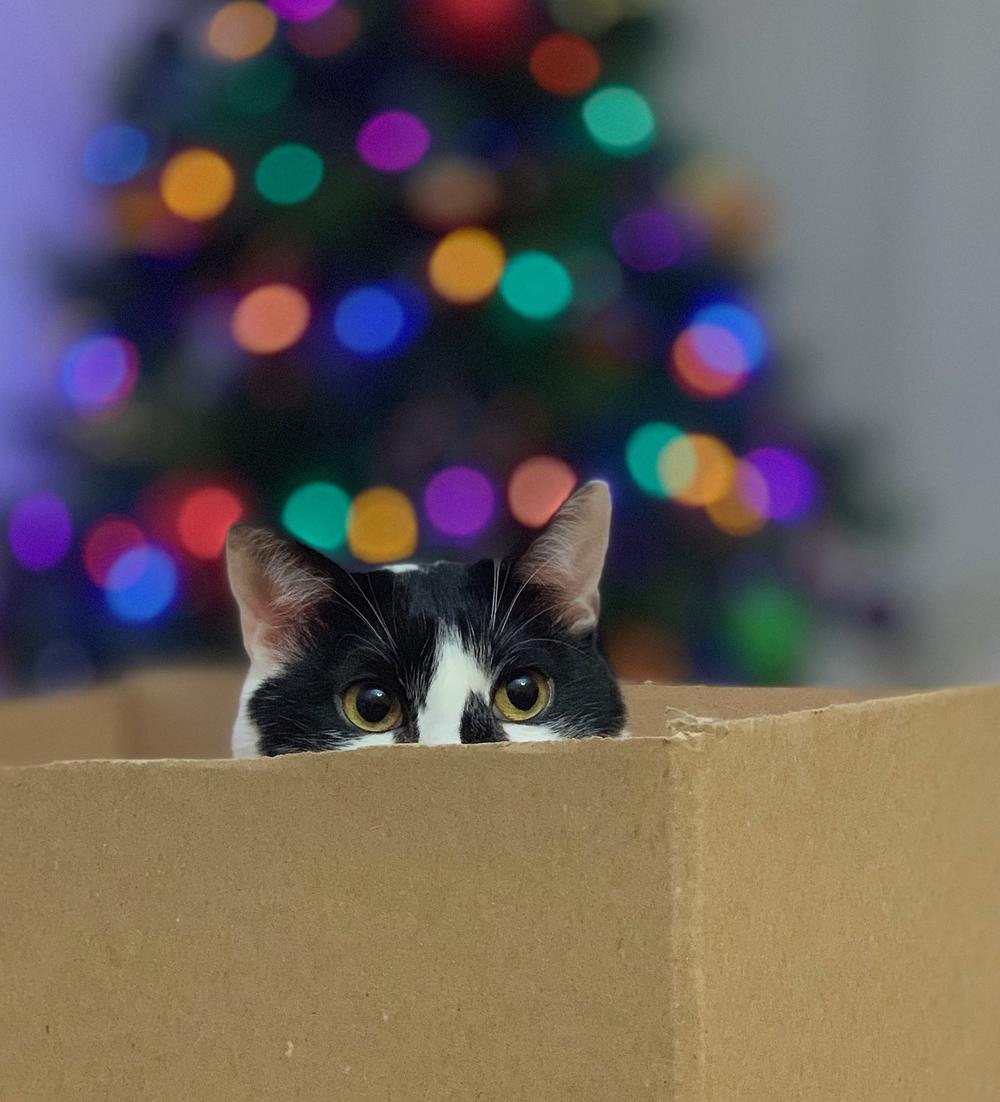Wondering Why Your Cat Is Acting So WEIRD? Then Read This

Do you feel that?
The unsettling knot in your stomach, the anxiety clawing at your insides, the nagging worry that something is wrong with your beloved furry friend?
Trust me, I've been there too. 😔
Keep reading to uncover the truth behind your cat's mysterious behavior.
Unusual Cat Behavior: Possible Reasons for Strange Actions and Hiding
Cats can be mysterious creatures, and sometimes you might find yourself scratching your head in confusion. 😺
But don't worry fellow cat owners, I've got you covered with a list of three main reasons why your kitty might be acting strangely and hiding away:
- Stress or anxiety: Cats are delicate beings who thrive on routine and familiarity. Any changes to their environment, like moving or introducing a new pet, can cause stress and anxiety. Keep an eye out for other signs of distress, such as excessive grooming or loss of appetite.
- Illness or injury: When cats feel under the weather, they tend to seek refuge in secretive spots. It's their way of protecting themselves and conserving energy. If you notice other symptoms like unusual bathroom habits or weight loss, it's crucial to consult a vet.
- Senior cat behavior: Just like us humans, our furry companions age too, and their bodies go through changes. Older cats may prefer hiding more often due to discomfort, joint pain, or vision problems. Make sure their surroundings are easily accessible and provide them accommodations like ramps or low-sided litter boxes.
Cat owners, decoding our furry friend's behavior requires careful observation and patience.
Look for patterns, consider their overall health, and create a safe, stress-free haven where they can relax and feel secure.

By following these tips, you'll hopefully unravel the mysteries of your cat's antics and forge a stronger bond between the two of you.
And it doesn't stop there!
What if I told you that there are even more unexpected reasons why your cat may be acting weird?
In the next section, we will explore additional factors that could be influencing their behavior and what you can do about it.
Don't miss out on this valuable information - let's dive in!
What to Do When Your Cat Is Hiding
Here are ten things you can do when your cat is hiding:
- Give them a dedicated spot to hide, like a cozy bed or covered box.
- Make sure the hiding spot feels cozy and secure for them.
- Don't try to force them out of hiding; instead, use food, treats, or toys to lure them out.
- Tempt them with their favorite treats, wet food, or playtime to entice them to come out.
- Offer hiding spots throughout your home to make them feel safe.
- If they keep hiding, check if they have any health issues causing discomfort or pain.
- If your cat seems depressed, be patient and show them love. Bring in toys, treats, and familiar items like blankets or clothing.
- If the hiding behavior continues for a long time, seek advice from a vet.
- Take the time to examine your cat and figure out why they're hiding.
- Remember, it's not normal for cats to hide, so addressing the issue is important for their overall well-being.
Those are some practical tips to help you handle a hiding cat. Hopefully, they'll help create a comfy environment for your furry friend!
Moreover, if you're curious about why your cat exhibits this behavior, I encourage you to read my blog post.

Understanding the reasons behind why cats hold our hands can be a source of comfort and reassurance.
So, to delve deeper into this topic, take a look at my article, Why Does My Cat Hold My Hand.
It provides valuable insights that might calm your concerns and shed light on this intriguing habit.
Where Might My Cat Be Hiding?
If your cat has gone missing, here are 10 possible hiding spots to check:
- Underneath furniture.
- Behind large appliances.
- Inside closets or cabinets.
- In empty boxes or bags.
- Behind curtains or drapes.
- On high shelves or bookcases.
- Inside laundry baskets or hampers.
- Underneath the bed or mattress.
- Behind or inside furniture cushions.
- In small gaps or crevices in walls or ceilings.
Cats love cozy and enclosed spaces!
However, if you notice your cat hiding more than usual, it may indicate something is wrong.

Keep an eye out for other symptoms such as changes in eating or drinking habits, lethargy, or grooming issues.
If you're concerned about your cat's health, don't hesitate to reach out to your veterinarian.
Your furry friend deserves the best care!
And now, let's delve into how you can create a calm and peaceful environment for your cat to help alleviate their stress and reduce any unusual behavior!
What Should I Do if My Cat Is Acting Strange and Scared?
Minimize loud noises, sudden movements, and disruptive activities to create a calm and peaceful environment for your cat.
This will help reduce fear and encourage ease in your feline friend.
When cats feel scared or threatened, their behavior can become strange. They seek solace in hiding, finding safety in the seclusion.
Pay attention to your cat's hiding behavior as it may indicate something unusual.
Report any concerning behavioral issues to a veterinarian for expert guidance and advice. Your role as an owner is vital in ensuring the well-being of your furry companion.
What Should I Not Do if My Cat Is Acting Strange and Scared?
When your cat is acting weird and scared, here's what you gotta do:
- Don't yell or punish your cat, 'cause that just freaks them out even more.
- No need to force your cat out from their hiding spot, that only ramps up the anxiety.
- Pay attention if there's any aggression when you introduce a new cat. Keep an eye on their interactions and make sure each cat has their own space.
- Don't go overboard if your cat hides temporarily. It's usually their way of dealing with fear, no biggie.
The key to help your cat feel safe and chill lies in understanding their behavior and responding patiently and calmly.
Pay attention, because here's the crux of it: Further down the blog post, I'll share valuable information about how to tell if your cat is close to giving birth. So keep reading, because understanding their behavior will help you provide the best care possible.
And now that we know what not to do when our cat is acting strange and scared, let's explore some helpful tips and strategies to create a stress-free environment for them...
They Are Stressed or Anxious
When your cat is feeling stressed or anxious, there are several things you can do to help them feel more relaxed:
- Establish consistent daily routines to provide a sense of stability and predictability in their environment.
- Provide interactive toys or puzzles that engage their minds and keep them mentally stimulated.
- Minimize anxiety-inducing triggers like loud noises or sudden changes in routine or environment.
- Create a stress-free environment by providing hiding places and a sense of security for your cat.
- Use calming sprays or pheromone diffusers to reduce stress levels and promote relaxation.
- Keep an eye out for changes in behavior like excessive hiding, appetite changes, excessive grooming, or aggression, as these may indicate underlying stress.
- Seek the guidance of a veterinarian if your cat exhibits frequent fearfulness or chronic stress that requires medication.
- Address any significant life changes, such as moving or the loss of a companion, with extra care and attention to your cat's needs.
By implementing these strategies, you can provide a peaceful and stress-free environment for your furry friend.
But it's not just stress and anxiety that can cause your cat to act weird.
You have to also monitor their eating habits, activity levels, and bathroom habits for any signs of underlying health issues...
They Are Ill or Injured
When your cat isn't feeling well or gets hurt, you have to really pay attention to how they act and do something if necessary. Pay close attention to these important things:
- Watch their eating habits closely because changes might mean they're not healthy.
- It's super important to always have fresh water available so your cat stays hydrated.
- Look out for any signs of hiding, being tired all the time, or sudden mood changes since these could be signs that something is wrong.
- If your cat stops eating, drinks a lot more than usual, or doesn't use the litter box, it's definitely time to take them to the vet.
- Keep an eye out for when their third eyelid shows or if they start acting differently in the bathroom.
- When your cat loses weight, their coat looks bad, their gums swell up, their breath stinks, or they cough or breathe differently, these things could all mean there's an underlying health problem.
- You really need to get your cat to a vet quickly so they can figure out what's wrong and give the right treatment.
Your cat depends on you to notice these signs and take care of them.
If you're worried, don't wait to ask a pro for help.
They Are Close to Giving Birth
If your cat is hiding and displaying unusual behavior, there's a good chance she's close to giving birth.
Here are some steps you can take to ensure her comfort during this time:
- Set up a comfortable nesting area with soft bedding materials and warm blankets.
- Provide a secure and peaceful spot for her to give birth.
- Be prepared for heightened affection and a preference for avoiding stomach stroking.
- Give her extra care and attention during this time.
- Ensure she has nutritious meals to support her health and the health of her kittens.
- Avoid stressing or disturbing her as much as possible.
- Keep an eye out for any signs of distress or complications during labor.
- Consult with your veterinarian for guidance and assistance.
Creating a suitable birthing environment and providing extra love and care will contribute to the well-being of your pregnant cat and her kittens.
Conclusion
Summary:
- Increased hiding may indicate stress, anxiety, illness, or old age.
- Use food, treats, toys to lure your cat out of hiding.
- Provide hiding spots and address any health issues.
- Hiding can be a sign of illness, monitor for other symptoms.
- Report unusual behavior to a veterinarian for guidance.
- Handle a scared cat carefully, avoid grabbing or pulling.
- Minimize triggers that cause stress and provide security.
- Consult a vet if behavior changes persist or if cat seems afraid frequently.
- Monitor changes in mood, appetite, and bathroom habits for illness.
- Consider pregnancy as a potential cause of hiding behavior.
And that wraps up today's article.
If you wish to read more of my useful articles, I recommend you check out some of these: Cat Hiding Behind Tv, Why Is My Cat Hiding in the Closet, Why Does My Cat Sit in the Bathtub, Why Do Cats Sneak Around, and Cat Runs Out of the Litter Box While Pooping
Talk soon,
-Sarah Davis